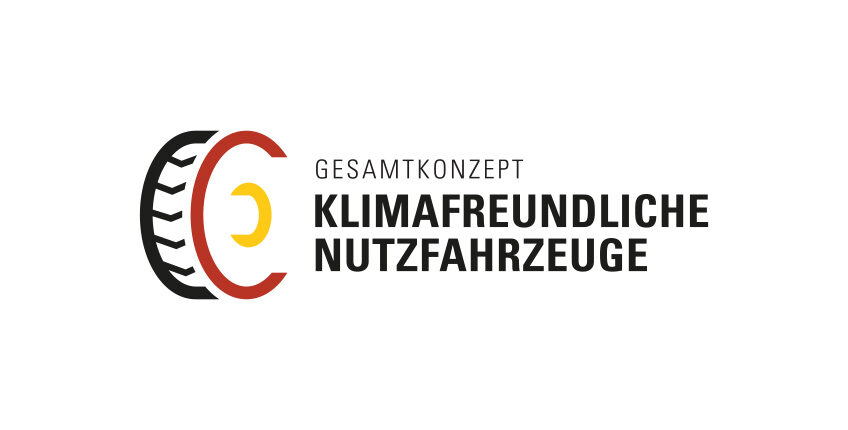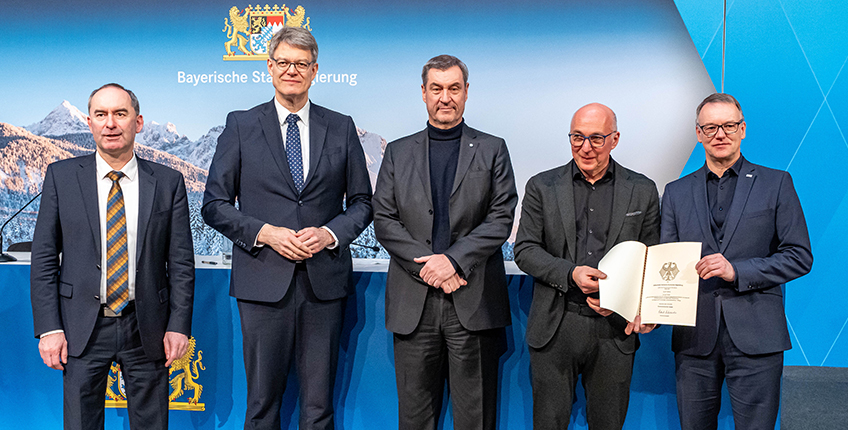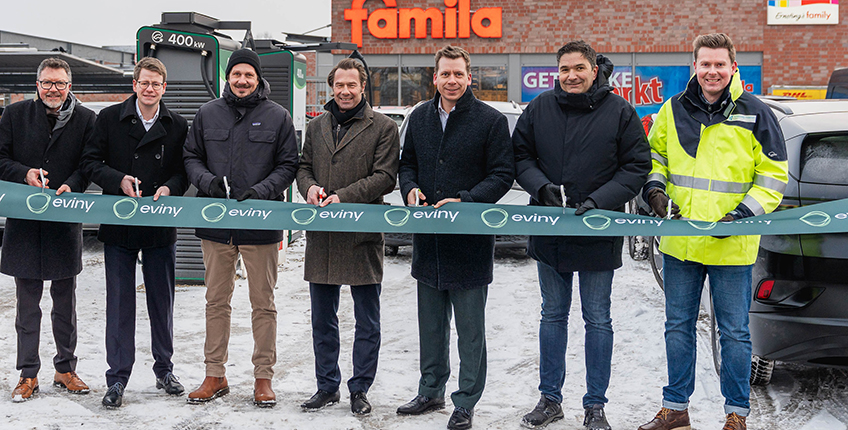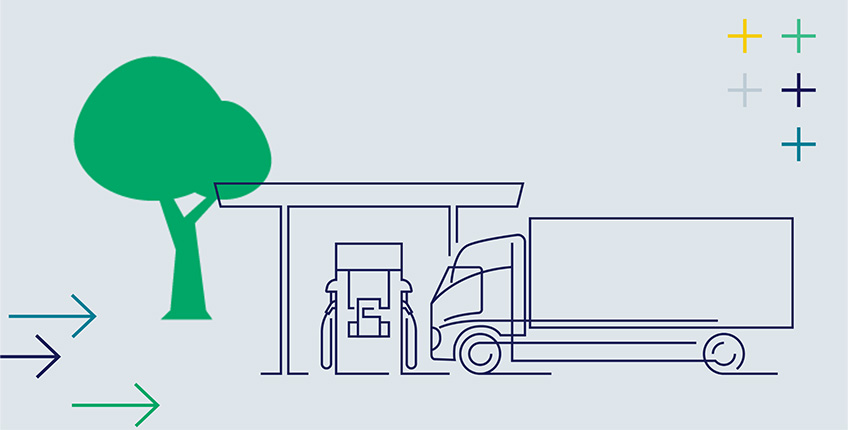The Federal Ministry for Digital and Transport (BMDV – Bundesministerium für Digitales und Verkehr) has published the final report evaluating the funding programme for climate-friendly commercial vehicles and associated charging infrastructure. On the basis of the ‘Guideline for the funding of light and heavy commercial vehicles with alternative, climate-friendly drives and the associated refuelling and charging infrastructure’ (KsNI – ‘Richtlinie zur Förderung von leichten und schweren Nutzfahrzeugen mit alternativen, klimaschonenden Antrieben und zugehöriger Tank- und Ladeinfrastruktur’), the programme supported investments in climate-friendly commercial vehicles, the associated refuelling and charging infrastructure and feasibility studies between 2021 and 2024.
The evaluation of the KsNI programme was conducted between August 2024 and April 2025 by a consortium of specialists consisting of Öko-Institut e.V., the Fraunhofer Institute for Systems and Innovation Research (ISI) and aproxima Gesellschaft für Markt- und Sozialforschung Weimar mbH. The evaluation was carried out on behalf of the BMDV and coordinated by NOW GmbH. The aim of the evaluation was to examine the impact and economic efficiency of the KsNI funding programme and its effects on business and competition.
Crucial impetus provided for market ramp-up of climate-friendly commercial vehicles
The evaluation confirms that the main objective of the funding – to activate a market for climate-friendly commercial vehicles and to achieve a resulting reduction in greenhouse gas emissions – has been achieved. With a current approved funding volume of around 919 million euros, over 6,600 climate-friendly trucks and around 2,500 charging stations are being funded. The KsNI programme is considered an important driving force (a so-called ‘flagship’) for the electrification of road freight transport in Europe, particularly for heavy-duty N3 class trucks, where more than half of the new registrations during the funding period received funding via the programme.
The effect was smaller for light-duty N1 commercial vehicles, which is partly due to the use of alternative funding instruments, such as the environmental bonus (‘Umweltbonus’) scheme. However, here too, a significant increase in the share of climate-friendly vehicles in total registrations was achieved. The general increase in the range of models on offer, however, is attributed more to EU requirements than to the KsNI programme alone.
Although the funding in the early market phase is considered to have provided an effective stimulus, the report emphasises that other factors, such as CO2 fleet targets for heavy-duty vehicles, favourable effects on tolls and the greenhouse gas reduction quota, also had a significant influence on the market ramp-up. The high administrative burden of the programme and the tendency towards a high subsidy rate of 80 percent were viewed critically. The latter is also explained by uncertainties, for example regarding the residual values of the vehicles or their technical reliability, which made it difficult to precisely assess the appropriateness of the subsidy rate at the beginning of the subsidy programme.
Savings potential of 846,000 tonnes of CO₂ equivalents
The evaluation also examines the CO2 savings potential. The results show that the use of KsNI-funded commercial vehicles will save around 846,000 tonnes of CO2 equivalents in the future. The report concludes that the funding was the cause of around two-thirds of this reduction.
Dagmar Fehler, CEO and Spokesperson for NOW GmbH:
“The evaluation of the KsNI programme confirms that the funding had a real flagship character for climate-friendly commercial vehicles. The KsNI provided crucial impetus for the market and was seen by the logistics industry as a clear political commitment to battery-electric and fuel cell vehicles as a technology of the future. I am pleased that NOW GmbH was able to provide support here through its expertise and to contribute important work in coordinating the programme. This experience will lay vital foundations for possible future support measures by the incoming federal government.”
Download the KsNI Evaluations Report (in German)
About NOW GmbH
Since 2008, NOW GmbH has been supporting the federal government’s targets in its climate and industrial policy. The tasks of the federally-owned company include developing, monitoring and evaluating funding programmes about climate-neutral mobility and energy supply. NOW GmbH experts supervise projects in the areas of hydrogen, fuel cells, battery and renewable fuels. They reimagine mobility and fuels for cars, buses, trains, commercial vehicles, ships and airplanes, and support the establishment and further development of charging infrastructure and hydrogen refuelling stations for cars and trucks. More information on NOW can be found here.






